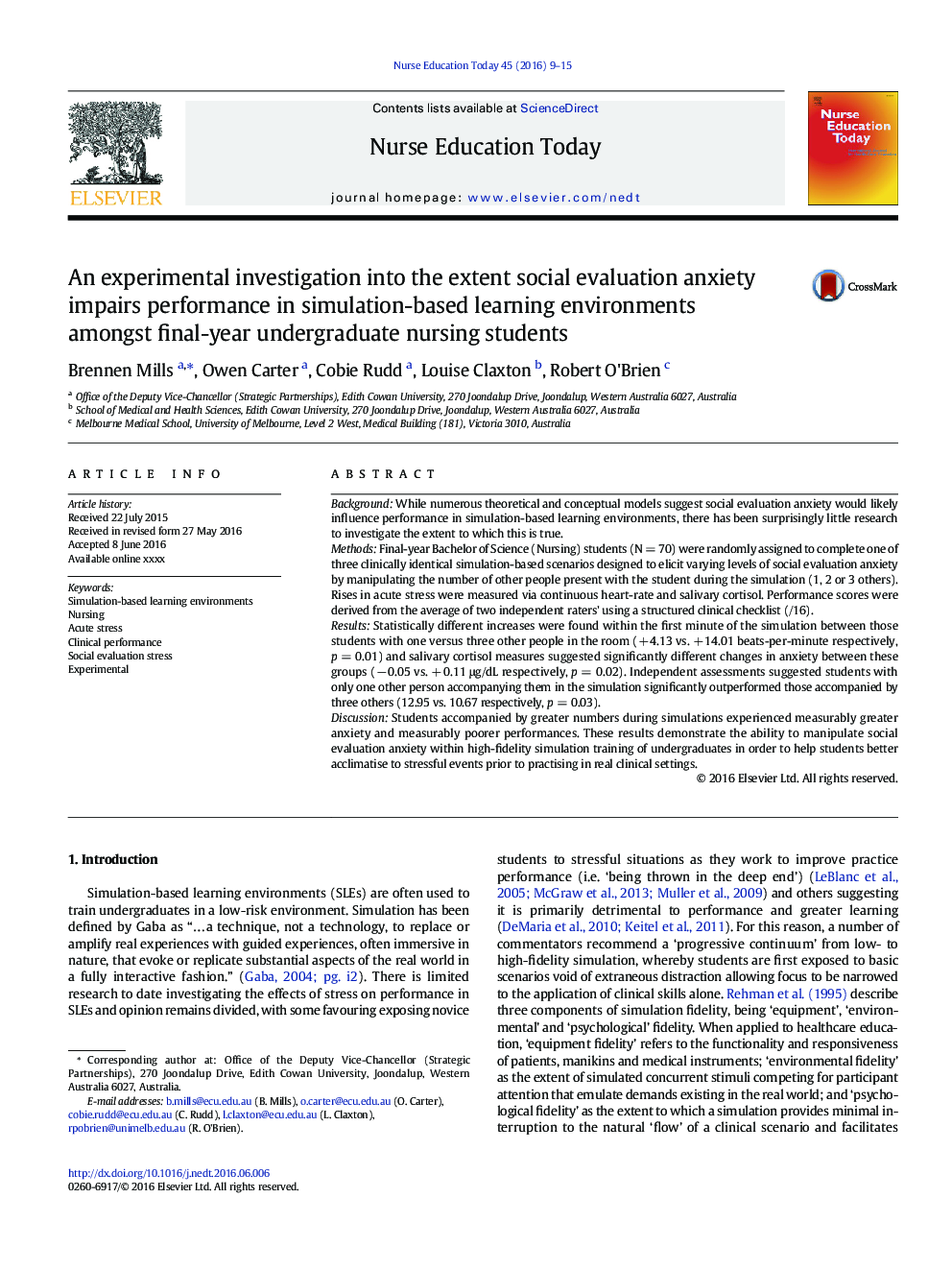| Article ID | Journal | Published Year | Pages | File Type |
|---|---|---|---|---|
| 367789 | Nurse Education Today | 2016 | 7 Pages |
•Social evaluation stress can negatively impact on clinical performance.•Stress is likely prominent amongst novice students with limited authentic exposures.•Potential patient safety implications•Early exposure to realistic clinical situations may acclimatise students.•High-fidelity simulation provides this without risk to patients.
BackgroundWhile numerous theoretical and conceptual models suggest social evaluation anxiety would likely influence performance in simulation-based learning environments, there has been surprisingly little research to investigate the extent to which this is true.MethodsFinal-year Bachelor of Science (Nursing) students (N = 70) were randomly assigned to complete one of three clinically identical simulation-based scenarios designed to elicit varying levels of social evaluation anxiety by manipulating the number of other people present with the student during the simulation (1, 2 or 3 others). Rises in acute stress were measured via continuous heart-rate and salivary cortisol. Performance scores were derived from the average of two independent raters' using a structured clinical checklist (/16).ResultsStatistically different increases were found within the first minute of the simulation between those students with one versus three other people in the room (+ 4.13 vs. + 14.01 beats-per-minute respectively, p = 0.01) and salivary cortisol measures suggested significantly different changes in anxiety between these groups (− 0.05 vs. + 0.11 μg/dL respectively, p = 0.02). Independent assessments suggested students with only one other person accompanying them in the simulation significantly outperformed those accompanied by three others (12.95 vs. 10.67 respectively, p = 0.03).DiscussionStudents accompanied by greater numbers during simulations experienced measurably greater anxiety and measurably poorer performances. These results demonstrate the ability to manipulate social evaluation anxiety within high-fidelity simulation training of undergraduates in order to help students better acclimatise to stressful events prior to practising in real clinical settings.
